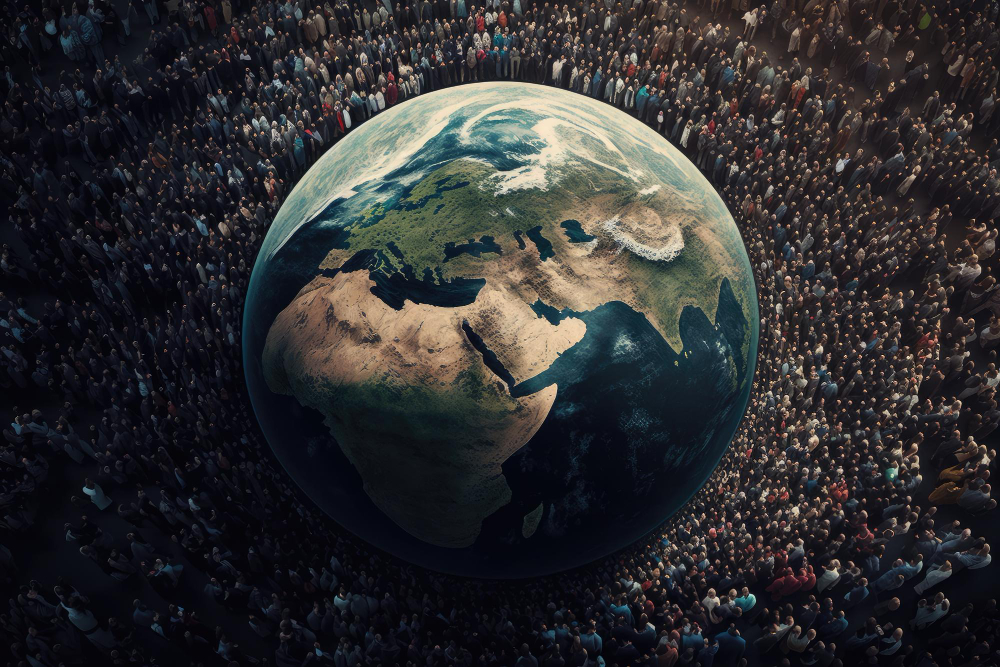Your Excellencies, colleagues and friends, ladies and gentlemen,
A warm welcome to the Clingendael State of the Union Conference 2024. Clingendael is thriving. But partly for reasons that give us little joy. Because of the enormous turbulence around us. Governments at all levels, businesses, ngo’s, media and professionals turn to us to make sense of that turbulence.
Turbulence in the world, so drastic, that Bundeskanzler Scholz has called it a Zeitenwende. We are moving from a hyper globalized world under American hegemony towards a more multipolar geopoliticizedworld with challenging implications for Western states that have been on geopolitical holiday for a couple of decades.
Western states now also have to deal with power politics and become aware of territorial politics and of the force of collective identity politics.
They have to adapt from believing in and relying on an international legal order, that served Western interests very well, to the power politics of Russia that followed-up its invasion of Georgia and its annexation of Crimea with a large-scale invasion of Ukraine.
They must adapt from striving for a world market with universal rights for consumers and producers and an ideal of universal protection of human rights, to territorial politics. Where nation-states are delineating their communities and resurrecting borders. In order to regain control over their industrial base and labor markets; to redirect their value chains to become more resilient in the light of the instrumentalization of economic dependencies; to regulate and curb migration in the face of irregular migration pressure; and to invest globally in infrastructure and partnerships to connect their territories with critical raw materials and critical foreign markets for their products.
And Western states are waking up from celebrating individualism, to a world in which leaders that have invested in collective identity politics – in strong national identities – have emerged as more powerful. Because when you have a convincing narrative for your people, about where they come from, what they stand for, and where they are heading as a collective in this turbulent world, it is much easier to be resilient, to mobilize people and to stand in solidarity in the face of global challenges.
For a country like the Netherlands that used to be one of the most globalized countries in the world, this Zeitenwende in the world from hyper globalization to geopolitics is a huge paradigm shift. But at Clingendael we see two interlinked Zeitenwenden going on. Not only in the world, but also within Western democracies.
A Zeitenwende within Western democracies from left-right politicization and a permissive consensus about international politics, towards a politicization of international politics in reaction to societal pessimism, a sense of loss of control over societies in a hyper globalized world. A politicization along a cultural axis, about questions of identity and community, that separate nationalists and globalists. For quite a while, elections were determined by this politicization along the cultural axis.
However, since the large-scale invasion of Russia in Ukraine and the resulting gas price inflation, the left-right dimension is back with a vengeance. Only political parties that have a narrative on both personal economic security (that is the left-right dimension) as well as a narrative on how to deal with global challenges (that is on the cultural dimension) are able to win elections.
Now this Zeitenwende within our Western societies is getting an enormous impulse by the re-election of Donald Trump. Because of the world power of the US, Trump embodies the double Zeitenwende: of the shift to power politics, border politics and collective identity MAGA politics in the world, and of the rise of nationalism in Western societies.
Over the last decades we have seen the rise of different types of nationalists in Western societies. With regard to their international position one can distinguish three types of nationalists.
First: shortsighted nationalists. These isolationists take their country out of the European Union, and they suffer economically. This species of nationalists is dying out. After Brexit, we no longer hear pleas for Nexits or Frexits.
Secondly, we have malicious nationalists. They cause chaos and polarization. And then they blame judges, the deep state or the EU and profit electorally from societal deception and diclinism.
But it is the third type of nationalists that might become the game-changer in the double Zeitenwende. The third type are the smart nationalists, the inter-nationalists. The nationalists that take office and find out in government that you can only deliver on your election promises when you cooperate inter-nationally. The nationalists, like Meloni, who understand that you need to cooperate within the EU and with Tunesia and Egypt to protect your borders from irregular migration and that you need selective labor migration for ageing Italy in order to survive. Or the Danish, who would by now rather get rid of their opt-out of European migration policies, since they see that the EU is more powerful and effective in dealing with third countries.
Now if nationalists become inter-nationalists, the two Zeitenwenden in the World and within Western societies start oscillating. And that is the mind-boggling turbulence that we might face now. Internationalism has for decades been loaded with progressive or neo-con content. Cooperating internationally to avoid climate change, or to enforce democracy in third countries. But inter-nationalism is of course a competence that also deeply conservative and nationalist forces might develop. And if they start cooperating inter-nationally, that can really alter the EU from within as well as the global order.
It will matter significantly which variant of nationalism will become dominant globally. In a geopolitical, de-risking world, majorities in all Western societies become nationalist to a certain extent. But there is an important second distinction to make within the nationalists.
First, there are exclusive nationalists that define the collective identity of their nation in religious or ethnic terms. As Christian, white, nations. And second, there are inclusive nationalists, that define the collective identity of their nation in terms of where we come from, stand for and are heading, that is as a societal project. With the memory of specific traditions, and an emphasis on certain virtues: the Netherlands of the hard-working Dutchmen, in the words of former Prime Minister Rutte. I, as a hardworking Chinese Indonesian French Dutchwoman can be part of that societal project.
A big question for progressives and liberals today is whether they can also rediscover inter-nationalism and inclusive nationalism, that is: cooperation between nation states, able to define themselves as a project open to people that are willing to share that project. Not cosmopolitanism and not neo-liberalism. Since for decades, progressives and liberals have been de facto open border globalists hoping for world government or a world market.
To understand the turbulence of a double Zeitenwende that starts oscillating because of the rediscovery of inter-nationalism, we need you. It is for that reason that we brought together for this conference specialists of world politics and specialists of Western societies. International Relations and regional specialists and sociologists, historians and political scientists. I am very much looking forward to the combined intellectual power of all of you, because we need to join forces to make sense of what is going on. Thank you so much for joining us.
About the author:
Monika Sie Dhian Ho is General Director of the Clingendael Institute. She is also vice-president of the State Committee on Demographic trends 2050 and a lecturer at the Netherlands School of Public Administration in The Hague.


